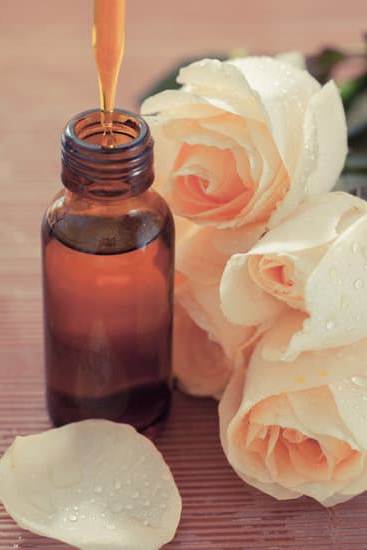Labor Aromatherapy has gained popularity as a natural and holistic approach to managing pain and promoting relaxation during childbirth. The use of essential oils for labor, known as labor aromatherapy, involves the inhalation or topical application of aromatic plant extracts to aid in the birthing process. This ancient practice harnesses the therapeutic properties of various essential oils to support women through labor and delivery.
Throughout history, aromatherapy has been utilized in different cultures for its healing properties, including during childbirth. The roots of using essential oils in labor can be traced back to ancient civilizations where plants and herbs were revered for their medicinal benefits. Over time, the practice of using aromatherapy during childbirth has evolved, with modern research highlighting its effectiveness in reducing pain and anxiety while enhancing relaxation.
The concept behind how labor aromatherapy works lies in the interaction between the olfactory system and the brain’s limbic system, which regulates emotions and responses to stress. The inhalation of specific essential oils triggers a response that can help manage pain, promote relaxation, and create a sense of calm during labor. By understanding the science behind aromatherapy, women can make informed choices about using essential oils to enhance their childbirth experience.
History of Aromatherapy in Labor
Aromatherapy has been used for centuries as a natural method to enhance well-being and promote relaxation. When it comes to labor, the history of using essential oils during childbirth dates back to ancient times. In civilizations such as ancient Egypt, Greece, and Rome, aromatic herbs and oils were commonly used for their therapeutic properties during labor. The practice of incorporating scents in childbirth has evolved over the years, with a renewed interest in recent times.
One significant figure in the history of aromatherapy is French chemist René-Maurice Gattefossé, who coined the term “aromatherapy” in the early 20th century. Gattefossé’s pioneering work with essential oils led to the recognition of their medicinal benefits, including their use during labor for pain relief and relaxation. His research laid the foundation for the modern understanding of aromatherapy and its application in various fields, including maternity care.
As childbirth practices have evolved, so has the use of aromatherapy in labor. Today, there is a growing interest among expectant mothers and healthcare providers in utilizing essential oils during childbirth to help manage pain, reduce anxiety, and create a calming environment. Research continues to explore the effectiveness of different essential oils in supporting women through labor, highlighting the enduring appeal and relevance of aromatherapy in promoting holistic well-being during this transformative time.
| Essential Oil | Main Benefit |
|---|---|
| Lavender | Calming and stress-relief properties |
| Peppermint | Relief from nausea and fatigue |
| Frankincense | Pain relief and relaxation |
How Labor Aromatherapy Works
Labor aromatherapy works by harnessing the power of essential oils and their aromatic compounds to promote pain relief and relaxation during labor. When inhaled, these volatile molecules interact with the olfactory system in the brain, sending signals to various parts of the body that can help alleviate discomfort and stress. The use of labor aromatherapy is based on the principles of holistic healing, focusing on the connection between mind, body, and spirit.
The Science Behind Aromatherapy
Aromatherapy is often associated with alternative medicine practices that prioritize natural remedies for various ailments. In the context of labor, essential oils are carefully selected for their therapeutic properties, such as anti-inflammatory, analgesic, and calming effects. These oils are typically diluted and diffused into the air or applied topically in a safe manner to support women during childbirth.
The Role of Scent in Pain Relief
The sense of smell is closely linked to emotions and memory in the brain. Certain scents can trigger positive responses that help reduce anxiety and improve mood, which can be particularly beneficial during labor. By creating a soothing atmosphere with specific essential oils, women in labor can experience a more comfortable and empowering birthing experience. The use of aromatherapy can also stimulate the release of endorphins – natural pain-relieving hormones – providing additional support for managing discomfort during childbirth.
Incorporating labor aromatherapy into a birth plan requires an understanding of how different essential oils interact with individual preferences and sensitivities. By working with trained professionals or healthcare providers knowledgeable about aromatherapy, expectant mothers can personalize their approach to using scent as a supportive tool for navigating the challenges of labor. When used thoughtfully and safely, labor aromatherapy can contribute to creating a calm and positive environment that enhances overall well-being throughout the childbirth process.
Best Essential Oils for Labor
Labor aromatherapy has gained popularity as a natural and holistic approach to managing pain and promoting relaxation during childbirth. Essential oils have been used for centuries for their therapeutic properties, making them ideal for enhancing the labor experience. When it comes to choosing the best essential oils for labor, it is essential to select those that are safe, effective, and known for their calming and pain-relieving properties.
Here are some of the top essential oils recommended for use during childbirth:
- Lavender Oil: Known for its calming and soothing effects, lavender oil can help reduce anxiety and promote relaxation during labor.
- Peppermint Oil: Peppermint oil is often used to alleviate nausea and provide a cooling sensation when applied topically or diffused.
- Frankincense Oil: With its grounding and uplifting scent, frankincense oil can help create a sense of peace and spiritual connection during labor.
It is important to note that not all essential oils are suitable for use during labor, as some may be too strong or stimulating. It is crucial to consult with a healthcare provider or a qualified aromatherapist before using any essential oils during childbirth. Additionally, always dilute essential oils properly and perform a patch test before applying them to the skin to avoid any adverse reactions.
Incorporating the right essential oils into your labor support can enhance your overall experience by providing comfort, relief, and a sense of calmness. Whether you choose to diffuse these oils in the room, apply them topically, or inhale them directly from the bottle, incorporating aromatherapy into your birthing plan can be a valuable tool in helping you cope with the intensity of labor.
Safety Precautions and Guidelines
Aromatherapy is an increasingly popular holistic approach to childbirth that involves using essential oils to promote relaxation, pain relief, and overall well-being during labor. While the benefits of labor aromatherapy are widely recognized, it is important to follow safety precautions and guidelines to ensure a safe and effective experience for both the mother and the baby.
One of the key considerations when using aromatherapy during labor is the quality of essential oils being used. It is crucial to choose high-quality, pure essential oils that are safe for pregnancy. Consult with a qualified aromatherapist or healthcare provider to ensure that the essential oils you plan to use are suitable for labor and do not pose any risks to you or your baby.
In addition to selecting safe essential oils, it is important to dilute them properly before applying them topically or using them in a diffuser. Essential oils are highly concentrated plant extracts and can cause skin irritation or sensitization if not diluted correctly. Always follow recommended dilution ratios and usage guidelines provided by aromatherapy experts or healthcare professionals. It is also advisable to perform a patch test before widespread use to check for any adverse reactions.
| Essential Oil Safety Tips | Guidelines |
|---|---|
| Choose high-quality, pure essential oils | Ensure safety for pregnancy |
| Dilute essential oils properly | Follow recommended ratios |
| Perform patch test before widespread use | Check for adverse reactions |
Case Studies
Labor aromatherapy has gained popularity among expectant mothers seeking natural ways to manage pain and promote relaxation during childbirth. Real-life stories of women who have used aromatherapy during labor highlight the positive impact it can have on the birthing experience. Here are some inspiring case studies that shed light on the benefits of incorporating essential oils into the labor process:
- Emma, a first-time mother, was initially skeptical about using aromatherapy during labor but decided to give it a try after hearing positive reviews from friends. She chose to diffuse lavender essential oil in her birthing room and found that its calming scent helped her stay relaxed and focused during contractions.
- Jessica, who had a history of anxiety, opted for a custom blend of chamomile and ylang-ylang essential oils to alleviate her fears and create a sense of tranquility during labor. The soothing aroma not only eased her anxiety but also provided a comforting ambiance for her support team.
- Sarah, a mother of three, used a combination of peppermint and frankincense essential oils to manage intense back labor pains. The cooling effect of peppermint coupled with the grounding properties of frankincense offered her much-needed relief throughout the challenging moments of childbirth.
These personal accounts demonstrate the diverse ways in which labor aromatherapy can be tailored to meet individual needs and enhance the overall birth experience. By incorporating specific essential oils or blends into their birthing plans, women like Emma, Jessica, and Sarah were able to tap into the therapeutic benefits of aromatherapy to navigate labor with greater ease and comfort.
Their stories serve as testimonials to the effectiveness of using scent as a powerful tool for emotional support and pain management during childbirth.
Expert Advice
Importance of Seeking Professional Guidance
When it comes to incorporating labor aromatherapy into childbirth, seeking advice from experts in the field is crucial. Aromatherapy professionals have a deep understanding of the different essential oils, their properties, and how they can be safely used during labor. They can help you create personalized blends based on your preferences and needs, ensuring a positive experience during childbirth.
Choosing the Right Essential Oils
Experts recommend choosing high-quality, pure essential oils for labor aromatherapy to maximize their benefits and ensure safety. Some commonly recommended essential oils for labor include lavender for relaxation, clary sage for pain relief, and peppermint for energy. Consulting with an aromatherapist who specializes in childbirth can help you select the best essential oils tailored to your specific concerns and goals for using aromatherapy during labor.
Creating a Supportive Environment
Professionals in the field of aromatherapy and childbirth emphasize the importance of creating a supportive environment during labor. In addition to using essential oils, considerations such as dim lighting, calming music, and comfortable surroundings can enhance the effectiveness of labor aromatherapy. Experts advise preparing a soothing space where you can focus on breathing techniques, mindfulness, and relaxation exercises while benefiting from the aroma of essential oils for pain management and emotional support.
DIY Labor Aromatherapy Blends
Labor aromatherapy has gained popularity among expectant mothers seeking natural methods to manage pain and promote relaxation during childbirth. Creating custom blends of essential oils tailored to individual preferences and needs can enhance the overall labor experience. By understanding the properties of different essential oils and their benefits, women can prepare personalized aromatherapy blends to support them through labor.
When creating DIY labor aromatherapy blends, it is important to consider the specific objectives you want to achieve during childbirth. For pain relief, essential oils like lavender, peppermint, and clary sage are known for their analgesic and anti-inflammatory properties. These oils can help ease discomfort and promote a sense of calm during labor. Additionally, uplifting scents such as citrus oils (like lemon or orange) can provide energy and emotional support throughout the birthing process.
To create a custom labor aromatherapy blend, start by selecting a base oil such as fractionated coconut oil or sweet almond oil. Add a few drops of your chosen essential oils based on your desired effects – whether it’s pain relief, relaxation, or emotional support. It is recommended to dilute essential oils properly to ensure safe application during labor.
Experiment with different combinations until you find a blend that works best for you, keeping in mind any personal sensitivities or allergies you may have. Labor aromatherapy offers a holistic approach to childbirth that empowers women to take an active role in managing their own birthing experiences.
Conclusion
In conclusion, labor aromatherapy has emerged as a valuable tool for women seeking a natural and holistic approach to childbirth. The use of essential oils during labor has been shown to provide numerous benefits, including pain relief, relaxation, and emotional support. By harnessing the power of scent and the therapeutic properties of certain essential oils, women can create a calming and soothing atmosphere during the intensity of labor.
Throughout history, aromatherapy has played a significant role in childbirth practices, offering women comfort and relief during the birthing process. Today, with a better understanding of the science behind how aromatherapy works on both a physiological and psychological level, more expectant mothers are turning to this form of complementary therapy to enhance their birthing experience.
From reducing anxiety and stress to promoting a sense of empowerment and connection with their bodies, labor aromatherapy is becoming increasingly popular among those seeking a more natural approach to childbirth.
As with any form of complementary therapy, it is essential for women to practice caution and adhere to safety guidelines when using essential oils during labor. Consulting with healthcare providers and experienced aromatherapists can help ensure that the chosen oils are safe for use during childbirth. By following proper precautions and guidelines, women can harness the benefits of labor aromatherapy to create a supportive environment that promotes a positive childbirth experience.
Frequently Asked Questions
What Aromatherapy Is Good for Labor?
Aromatherapy can be beneficial during labor for various purposes. Essential oils like lavender, clary sage, and chamomile are often used to promote relaxation, reduce anxiety, and offer pain relief. Peppermint oil can help in managing nausea and vomiting.
Does Aromatherapy Work for Labour?
The effectiveness of aromatherapy during labor varies from person to person. While some women find great relief and comfort from using essential oils during childbirth, others may not experience the same benefits. It’s important to consult with a healthcare provider before using aromatherapy during labor.
What Can You Blend in a Diffuser to Induce Labor?
When considering a blend in a diffuser to induce labor, it’s crucial to choose essential oils that are safe for use during pregnancy. Some commonly recommended options include clary sage, jasmine, rose otto, and lavender.
These essential oils are believed to help promote contractions and facilitate the progression of labor. However, it’s essential to use them cautiously and under the guidance of a qualified professional.

Are you looking for a natural way to improve your health and wellbeing?
If so, aromatherapy may be the answer for you.





